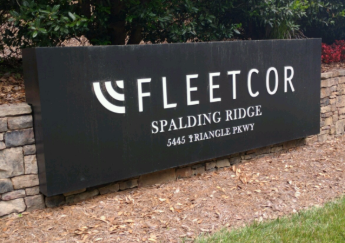FTC Alleges Fuel Card Marketer FleetCor Charged Hundreds of Millions in Hidden Fees

Complaint says Georgia-based company made false promises of fuel savings, deliberately hid large fees from customers
The Federal Trade Commission filed suit against a company that sells fuel card services to businesses, alleging that it has charged customers at least hundreds of millions of dollars in hidden fees after making false promises about helping customers save on fuel costs.
FleetCor is a publicly traded company headquartered in Atlanta, Georgia and reported $2.4 billion in annual revenues in 2018. FleetCor markets its fuel card services under its own “Fuelman” brand name, as well as through co-branded cards, to businesses around the country. Its business customers give FleetCor’s fuel cards to their employees to use in refueling company vehicles.
According to the FTC’s complaint against FleetCor and its CEO, Ronald Clarke, the defendants falsely have told potential customers that they would save money, be protected from unauthorized charges, and have no set-up, transaction, or membership fees.
The complaint outlines a broad array of fees that the defendants have charged customers in ways that customers did not detect. The fees have totaled at least hundreds of millions of dollars, harming tens of thousands of customers. The fees, despite the defendants’ promises, often have been charged on a per-transaction basis or have been required for membership in FleetCor’s programs.
According to the complaint, the defendants often have waited to begin charging many fees until a few billing cycles have passed, making the fees harder to detect among a customer’s monthly bill fluctuations. The complaint also alleges that FleetCor’s invoices often have failed to disclose that any fees were being charged, requiring customers to proactively view other account management reports. Even on those documents, many fees have been obscured among other information.
The FTC alleges that the defendants also have not posted customer payments when they were received. That has led to even more fees, including late fees for on-time payments and “high credit risk” fees, because the customers ostensibly had paid late. The defendants have charged some customers “high risk” fees for being in the trucking and transportation industry, even though FleetCor’s primary customer base operates in those very industries.
In addition, the defendants’ promises about stopping unauthorized charges also have proved untrue, according to the complaint. While the defendants have advertised FleetCor’s cards as “fuel only” cards, cardholders have been able to purchase any item sold at fueling locations, including beer and snacks.
The complaint alleges that FleetCor’s own terms of service have said customers would have to pay charges even if they were outside the limits placed by the customer. Internal company emails called the practice “…the most egregious customer impact we do as it takes customers by surprise (unless they’re really large) based on their experience with consumer cards.”
The complaint alleges that customers generally have not achieved the advertised per-gallon savings by using FleetCor’s cards. To support this allegation, the complaint cites FleetCor’s own documents, which show that customers’ average savings on fuel have fallen far short of the defendants’ marketing promises. The complaint also alleges that an analysis requested by Clarke in response to negative press coverage about these marketing practices showed that, on average, customers have saved a fraction of a cent per gallon—far less than the 5-10 cents per gallon frequently touted by the defendants. In addition, the fees charged by the defendants have exceeded any savings otherwise obtained using FleetCor’s cards.
The complaint charges FleetCor and Clarke with violating the FTC Act’s prohibitions on unfair and deceptive acts and practices.
The Commission vote authorizing the staff to file the complaint was 4-1, with Commissioner Wilson voting no, and Commissioner Phillips voting yes but dissenting in part as to the inclusion of Ronald Clarke as an individual defendant. The complaint was filed in the U.S. District Court for the Northern District of Georgia.
NOTE: The Commission files a complaint when it has “reason to believe” that the named defendants are violating or are about to violate the law and it appears to the Commission that a proceeding is in the public interest. The case will be decided by the court.
Category: Featured, Fuel & Oil, General Update, Management, News










